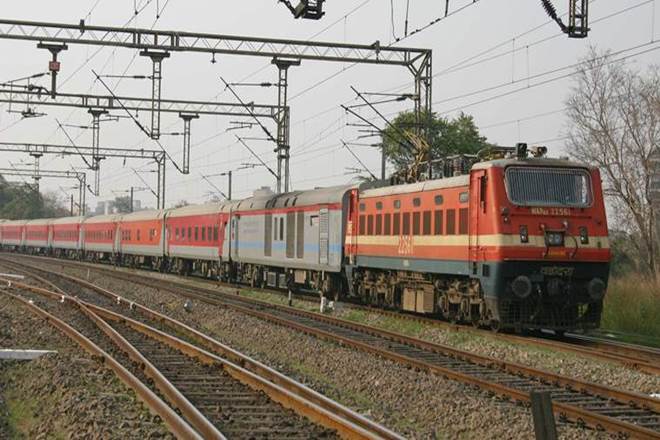A cabinet meeting led by PM Modi has approved 100 percent electrification of Indian railways. “We have electrified about 46% of routes. The work is on for electrification of about 20,000 km of routes, after which about 78% of Indian Railways will be electrified. Today [Wednesday], the Cabinet has approved 13,675 km of remaining routes at the cost of 12,134 crore,” said Piyush Goyal after PM-led Cabinet Committee on Economic Affairs (CCEA) meeting.
प्रधानमंत्री @NarendraModi की सरकार ने रेलवे के 100% विद्युतीकरण का लक्ष्य लिया है जिसपर तेज़ गति से काम करते हुए सरकार ने नए आयाम स्थापित किए है, रेल विद्युतीकरण प्रोजेक्ट से ना केवल प्रदूषण कम होगा साथ ही रेलवे को सालाना करोड़ों की बचत होगी व ट्रेनों की रफ़्तार भी बढ़ेगी। pic.twitter.com/t6eEVvtcNW
— Piyush Goyal (मोदी का परिवार) (@PiyushGoyal) October 14, 2018
Earlier, some news reports had falsely indicated that the govt. was not keen on pursuing 100% electrification of major railway routes. This fake news was circulated under the influence of the railway officials’ lobbying group who were against this progressive step. There were speculations that these lobbying groups were working under the influence of General Electric who had received a contract to build 1000 diesel engines for Indian Railways.
These officials were ready to put modernization of railways at stake for their personal political and economic interests. However, the effort of these groups against Railway’s modernization drive has failed as the Cabinet has approved the 100% electrification of major routes. This is a huge win for Piyush Goyal as railway minister because he was pushing for 100 percent electrification since he assumed the charge of Railway ministry but was facing opposition from sections of powerful bureaucratic lobby. However, it seems the resolve of Piyush Goyal towards the electrification drive has prevailed against the lobby which was reportedly acting on behalf of interest of multinational companies for personal gains.
After the completion of 100 percent electrification in 2022, India would be the second largest electrified railway network in the world, after China. Our Asian neighbor has 87,000 km of electrified rail network. However, China has only 68 percent of its railway (the country has 1, 27,000 km of railway network) electrified. So, India would be the only large railway network with 100 percent electrification. As of now, India has the third largest electrified rail network after China and Russia, almost two third of freight and half of the passenger in the country moves on electric engines. The electrification drive will make railways more efficient, faster, reduce pollution and oil import bills and make them 21st century transport medium. “Electrification will not only increase the speed of trains by 10 per cent to 15 per cent but also line capacity by the same amount,” said Ghanshyam Singh, Member (Traction) Railway Board.
The cost for electrifying the remaining network is estimated to be around Rs 12,134.50 crore and the electrification drive would create 20.4 crore man-days during the period of construction. This phase would be mainly concentrated on non-major routes and last mile connectivity because all major routes are already electrified. So, this would create jobs and investment in rural economy. Indian railways have 22,550 trains that carry 2.2 crore passengers and 30.4 lakh tonnes of freight every day. According to Piyush Goyal, electrification will make railways profitable. “This will reduce dependence on imported fossil fuel and reduce costs for the Railways. Prime Minister wants to improve efficiency and by saving cost, make Indian Railways profitable. This would be done without burdening the passengers,” said Minister Piyush Goyal.
The electrification will aid in seamless train operations and enhance line capacity and higher haulage capacity. The safety record on electrified lines is better than those run on diesel engines due to improved signaling system. Railway safety improved significantly after Minister Piyush Goyal worked towards removing the unmanned crossings which numbered more than 3,000. Electrification will further improve the safety record. The powerful lobbying group against electrification must understand that the era of crony-capitalism where policies could be skewed for individual interest is over. All that Modi government looks in a policy is efficiency. Personal political and economic scores do not matter anymore.
